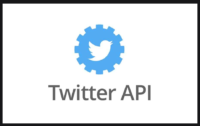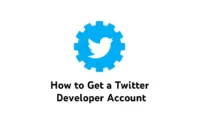Bootcamps In 2024: Trends Shaping The Future of Data Analysis
Data analysis has become one of the most in-demand skills across industries, with organizations relying on data to make informed decisions, optimize operations, and drive innovation. As the need for skilled data analysts continues to grow, bootcamps have emerged as a powerful, accelerated pathway for individuals to gain the technical expertise and practical experience needed to excel in the field. In 2024, bootcamps are evolving to meet the changing demands of the data analysis industry. Let’s take a look at the key trends shaping the future of data analysis bootcamps.
1. Increased Focus on Specialized Data Analysis Skills
Data analysis bootcamps are moving away from one-size-fits-all programs and are increasingly offering specialized training tailored to specific industries and applications. For example, bootcamps are now offering niche programs focusing on areas like financial analysis, marketing analytics, healthcare data analysis, e-commerce analytics, and social media analytics.
These specialized bootcamps provide learners with the opportunity to focus on the tools, techniques, and data sets specific to their area of interest or industry. By offering tailored curriculums, bootcamps are helping students gain a competitive edge by equipping them with the exact skills that employers in those sectors are seeking.
2. Integration of Advanced Data Tools and Technologies
The world of data analysis is evolving rapidly, and keeping up with the latest tools and technologies is crucial for aspiring data analysts. In 2024, datafrik amongst other bootcamps started incorporating advanced tools like Python, R, SQL, and Tableau into their curriculum.
Bootcamps are offering training in these powerful tools to ensure that graduates are ready to work with complex datasets and leverage emerging technologies to uncover valuable insights. By integrating these tools into their programs, they ensure that learners are well-equipped for the challenges of modern data analysis roles.
3. Real-World, Project-Based Learning
During the course of these bootcamps greater emphasis is placed on hands-on, project-based learning rather than focusing solely on theoretical knowledge. These programs are incorporating real-world datasets, business case studies, and live projects to give students the opportunity to apply their skills in realistic environments.
4. Integration of Soft Skills and Data Storytelling
While technical skills are essential for data analysis, employers are increasingly looking for analysts who can effectively communicate insights to non-technical stakeholders effectively. In 2024, bootcamps are putting a stronger emphasis on data storytelling—the ability to present data in a way that is clear, compelling, and actionable.
Data analysis bootcamps are now including modules that teach how to create visually engaging reports, build interactive dashboards, and effectively communicate findings. These programs help in developing essential soft skills such as communication, critical thinking, and collaboration, ensuring that students can translate their analysis into strategic business recommendations.
5. Data Ethics and Privacy Awareness
As concerns about data privacy and security grow, bootcamps are placing a significant focus on data ethics and privacy regulations. With increasing scrutiny around how companies handle personal and sensitive data.
Bootcamps are integrating lessons on how to responsibly handle data, protect user privacy, and ensure that analysis is conducted ethically. This trend helps prepare future data analysts to navigate the complexities of modern data practices and ensure they are contributing to a responsible, data-driven environment.
6. Flexibility and Remote Learning Options
As a result of the 2020 corona virus pandemic, the number of remote jobs have increased exponentially as well as the demand for flexible learning options, many data analysis bootcamps are embracing online and hybrid models. Bootcamps are now offering asynchronous courses that allow students to learn at their own pace, while still providing access to live sessions, mentorship, and collaborative projects.
This flexibility makes it easier for students to fit bootcamp learning into their busy lives, whether they are transitioning from another career or juggling work and family commitments.
7. Shorter, More Intensive Programs
Bootcamps are continuing to offer shorter, more intensive programs that allow students to quickly gain the skills they need to enter the workforce. Datafrik offers bootcamp-style sprints lasting anywhere from 5 to 7 weeks, where students engage in immersive learning experiences and complete intensive coursework in a specified time frame.
These shorter, high-intensity programs cater to learners who want to switch careers quickly or gain a specific set of skills in a short period of time. The compressed curriculum in these bootcamps allow students to fast-track their journey to becoming skilled data analysts.
8. Data Analysis for Non-Technical Professionals
Another important trend in 2024 is the rise of bootcamps targeting non-technical professionals who want to learn data analysis. These programs are designed for individuals in fields like marketing, sales, project management, and operations who need to leverage data in their day-to-day roles but may not have a technical background.
These bootcamps focus on teaching basic data analysis skills, such as using Excel, Google Analytics, and basic SQL, while also covering data visualization and reporting.
Conclusion
As the field of data analysis continues to evolve, so too do the bootcamps that provide the training and skills needed to succeed are increasingly focusing on specialized training, advanced tools, real-world applications, and soft skills like data storytelling and communication. With shorter durations, greater flexibility, and stronger connections, these bootcamps are providing learners with the knowledge and hands-on experience they need to thrive in today’s data-driven world.







